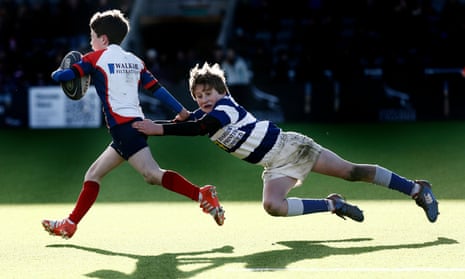
LeagueNews.co | Jess Malloy
In his article, Sean Ingle discusses the delicate balance between the benefits and risks of rugby for adolescents.
He acknowledges that rugby can be advantageous, but emphasizes the need to consider the potential dangers of contact sports on a developing brain.
This is a valid concern, as concussions in young athletes present a unique challenge due to the range and duration of symptoms.
Interestingly, many cases reveal a psychological component, with players fearing long-term cognitive impairment.
While there is still much we do not know about the long-term effects of concussions, evidence suggests that repeated sub-concussive impacts and years of play may be more significant in terms of brain damage.
Therefore, the identification and management of potential concussions is crucial, both in grassroots and professional rugby.
While contact sports can never be entirely risk-free, Dr.
Mike Forsythe believes that the future of rugby is not as bleak as some suggest, attributing this optimism to the proactive approach taken by schools and clubs in managing head injuries and concussions.
